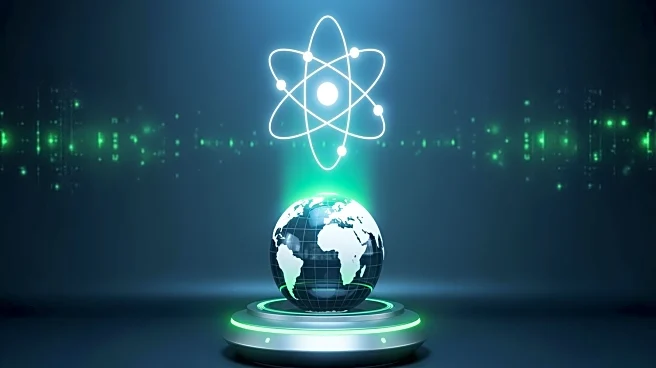What's Happening?
Iranian President Masoud Pezeshkian has stated that while Iran is open to negotiations, it will not relinquish its nuclear science or missile capabilities for defense purposes. This declaration comes amid
ongoing international tensions regarding Iran's nuclear program. Pezeshkian emphasized that Iran seeks peace but will not succumb to external coercion. His visit to the Iranian Atomic Energy Organisation in Tehran underscores the country's commitment to maintaining its nuclear capabilities, which it views as essential for national defense.
Why It's Important?
The stance taken by President Pezeshkian highlights the persistent challenges in diplomatic efforts to address Iran's nuclear ambitions. This position could impact U.S. foreign policy and international relations, particularly with countries advocating for nuclear non-proliferation. The refusal to compromise on nuclear and missile capabilities may lead to increased sanctions or diplomatic isolation, affecting Iran's economy and regional stability. Conversely, it could also prompt renewed diplomatic efforts to find a middle ground that satisfies both Iran's security concerns and international demands for transparency and restraint.
What's Next?
The international community, including the United States, may respond with increased diplomatic pressure or sanctions to compel Iran to reconsider its stance. Alternatively, there could be a push for renewed negotiations, possibly involving new proposals that address both security and non-proliferation concerns. The outcome of these diplomatic efforts will significantly influence regional security dynamics and the global non-proliferation regime.
Beyond the Headlines
Iran's firm position on its nuclear program raises ethical and legal questions about the balance between national sovereignty and international security obligations. The situation also reflects broader geopolitical tensions in the Middle East, where nuclear capabilities are a contentious issue. Long-term, this could lead to shifts in regional alliances and influence the global discourse on nuclear disarmament.












